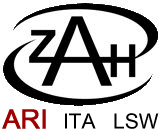Introduction to Computational Physics SS 2021 (UKWR2)
| NEWS: |
------------------------------------------------------------------------------------------------------------- How to find the enrolment key for moodle? Please look into the main Rocket Chat of the lecture. The link is here: https://uebungen.physik.uni-heidelberg.de/chat/group/ss21-compphys21 ------------------------------------------------------------------------------------------------------------- Enrolment is not possible anymore. In exceptional cases please contact the lecturers or tutors. ------------------------------------------------------------------------------------------------------------- Due to the Corona pandemic this course and the tutorials will be taught fully online. The lecture will use a zoom room, the access link will be distributed to all registered participants by email and also announced in moodle in due course; also the tutorials will be organized in separate, smaller, zoom online meetings with breakout rooms. ------------------------------------------------------------------------------------------------------------- The enrolment for the tutorials MUST be done separately through: Physics Tutorial Management Pages (Uebungen). NOTICE: In this system it is NOT necessary to enrol to the lecture. Only to the tutorial groups please! ------------------------------------------------------------------------------------------------------------- We also use the Moodle System V3 (Moodle3, direct link here to our lecture) of the University of Heidelberg to share informations, content and tutorial sheets. Please use your Uni-ID to get acccess to the MOODLE system. ------------------------------------------------------------------------------------------------------------- A manuscript of the lecture will be posted in due course in moodle. For a first view, you can look at an old script, link given at the end of this web page below. ------------------------------------------------------------------------------------------------------------- |
| Lecturers: |
Prof. Ralf Klessen;
ZAH/ITA, Albert Ueberle-Str. 2, 69120 Heidelberg; klessen@uni-heidelberg.de Prof. Rainer Spurzem; ZAH/ARI, Mönchhofstr. 12-14, 69120 Heidelberg spurzem@ari.uni-heidelberg.de |
| Tutors: |
Raul Dominguez (Group 1) raul.dominguez@stud.uni-heidelberg.de Jaeyeon Kim (Group 2) kim@uni-heidelberg.de Li-Hsin Chen (Group 3) li-hsin.chen@uni-heidelberg.de Glen Hunter (Group 4) glen.hunter@uni-heidelberg.de Albrecht Kamlah (Group 5) albrechtk@hotmail.de Da Eun Kang (Group 6) daeun.astro@gmail.com Federica Capellino (Group 7) federicacapellino@gmail.com Julian Urban (Group 8) urban@thphys.uni-heidelberg.de
|
| Time and Place: | Wednesday, 9:15 - 10:45 Uhr Friday, 11:15 - 12:00 Uhr Zoom room data here (Announcements): https://moodle.uni-heidelberg.de/course/view.php?id=6351 Lecture Time Plan - updated June 7
|
| Begin/Topic: | Wednesday April 14, 2021, 09:15 (Introduction and Planning Session, Organisation of Tutorials)
Solution of physical problems with the computer. Lecture in English Language. The module UKWR2 "Introduction to Computational Physics" can be part of both Bachelor and Master studies in physics. Its description (unfortunately still only in German) can be found in the Bachelor Handbook under this link. The main pre-requirement is that we recommend to know already a high level programming language. For absolute beginners in programming it will be quite hard (though not impossible, you can try if you want) to learn programming during the lecture. Our lecture focuses, however, on programming to solve physical problems, not programming itself. Regarding physical knowledge, basic knowledge is again useful for a deeper understanding (we will work on topics from mechanics, statistical physics and quantum mechanics, for example), but the technical/numerical tasks can be solved by only following the explanations in the lecture. |
| Tutorials (English) : |
Begin of Tutorials: Friday, April 16 / Monday, April 19 Group 1: Monday, 13:15 - 16:00, Raul Dominguez Group 2: Friday, 13:15 - 16:00, Jaeyeon Kim Group 3: Monday, 13:15 - 16:00, Li-Hsin Chen Group 4: Friday, 13:15 - 16:00, Glen Hunter Group 5: Monday, 13:15 - 16:00, Albrecht Kamlah Group 6: Friday, 13:15 - 16:00, Da Eun Kang Group 7: Monday, 13:15 - 16:00, Federica Capellino Group 8: Friday, 13:15 - 16:00, Julian Urban The exercise sheets will be uploaded to the pages of our lecture in the moodle3 system of the university every week usually until Wed evening or Thu morning by the latest. Students should summarise their answers to the exercises (graphs, values, text answers, etc) and provide them to the tutors. How this is organized (by sending a pdf file per email, or using one of the moodle facilities) is subject to confirmation, not clear yet. Recommended tool to prepare the tutorial work and assignments is an ipython notebook. But from older times we also have a LaTeX template - just in case. It is just an offer - you can use any software to write and create your files as long as at the end there is one file (most preferable: pdf) with the required content. Students should also send their computer source programs to the tutor so they can be checked. One document per group is sufficient, but the names of ALL group members should be included. |
| Script: |
Manuscript of this lecture 2008/2009 . A lecture script and more informations, and additional reading material, will be posted on our page in the Moodle3 system. |
| More Info: |
Most of the tasks can be done using Jupyter/python, but you are free to use other high level programming languages,
such as C/C++/Fortran to
solve the exercises in the tutorials (note that for the use of other very exotic or unusual programming languages,
there may be less or no support available from the tutors). In some cases Mathematica has to be used, it is provided
on the systems in the CIP pools.
Here are links to supplementary informations, which will be useful and explained during the progress of the lecture.
You can see the structure of the lecture in the script and the lecture plan (see links above). The script
also contains a literature list. More informations and materials can be found later in due course in the Moodle3 system. |
(Responsible for contents: Rainer Spurzem )

